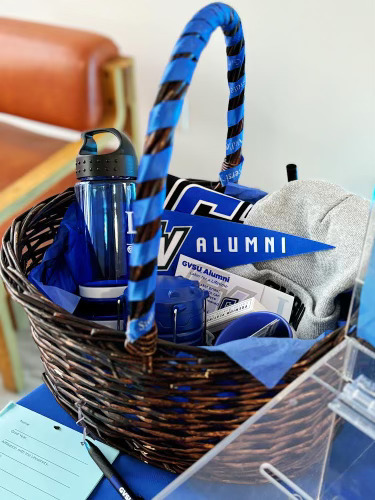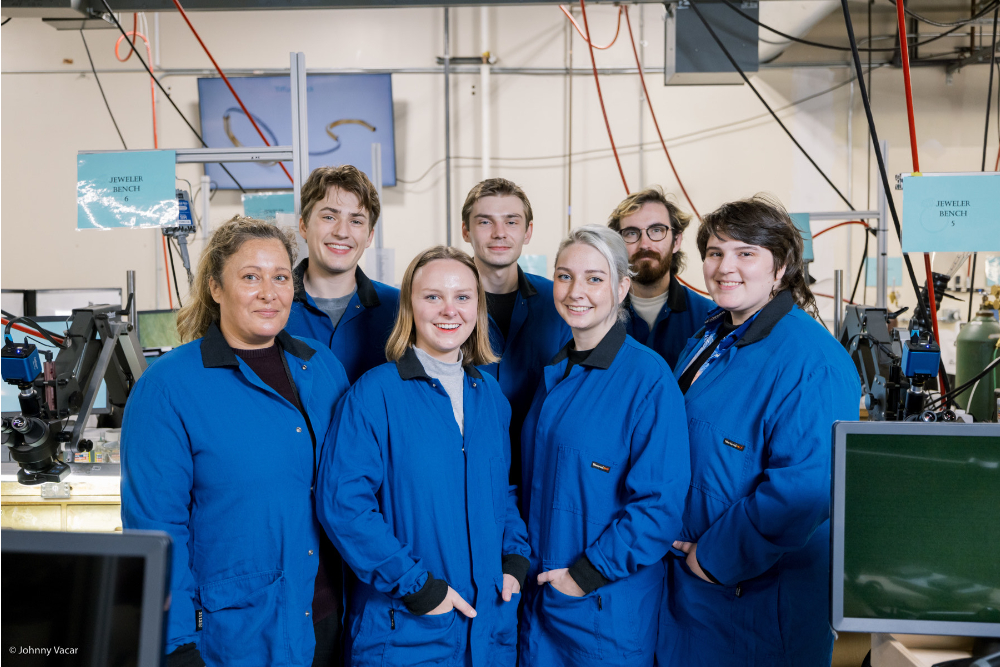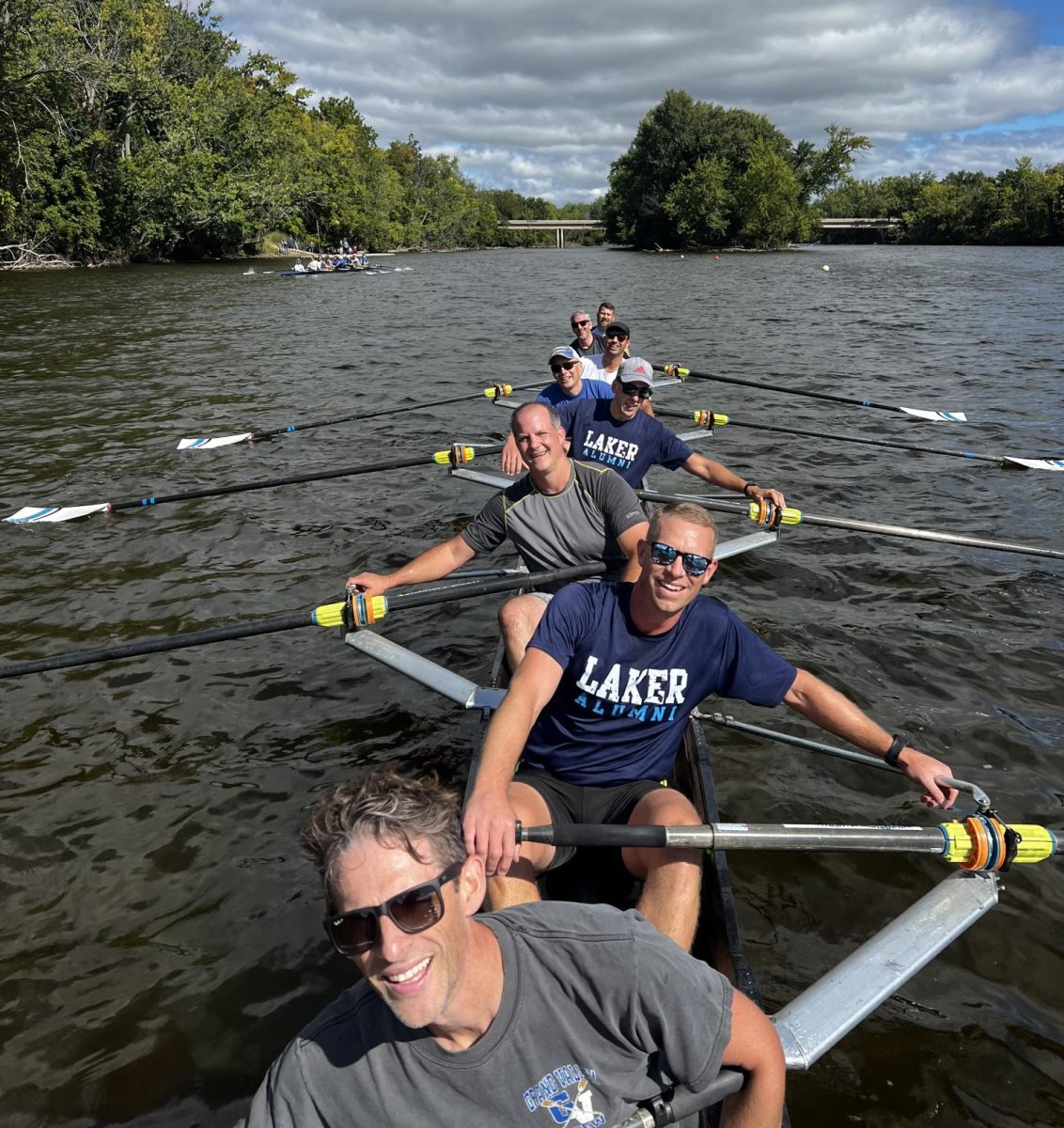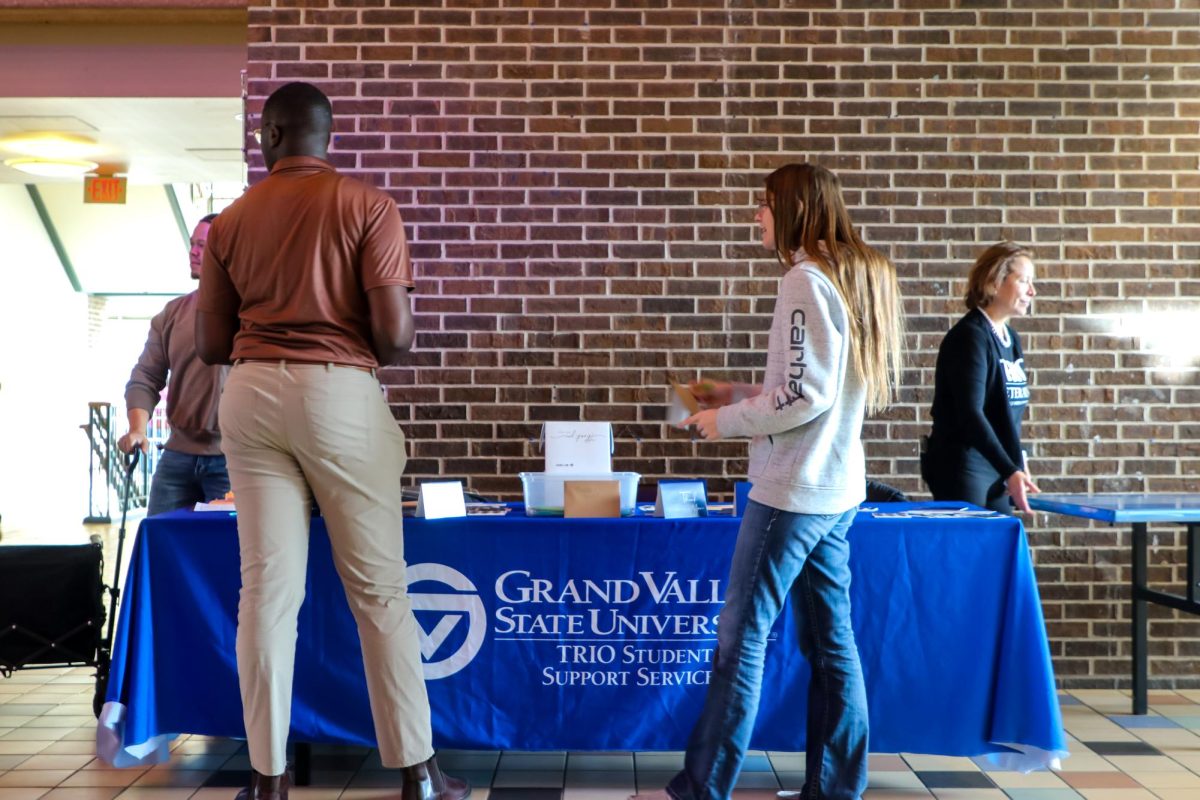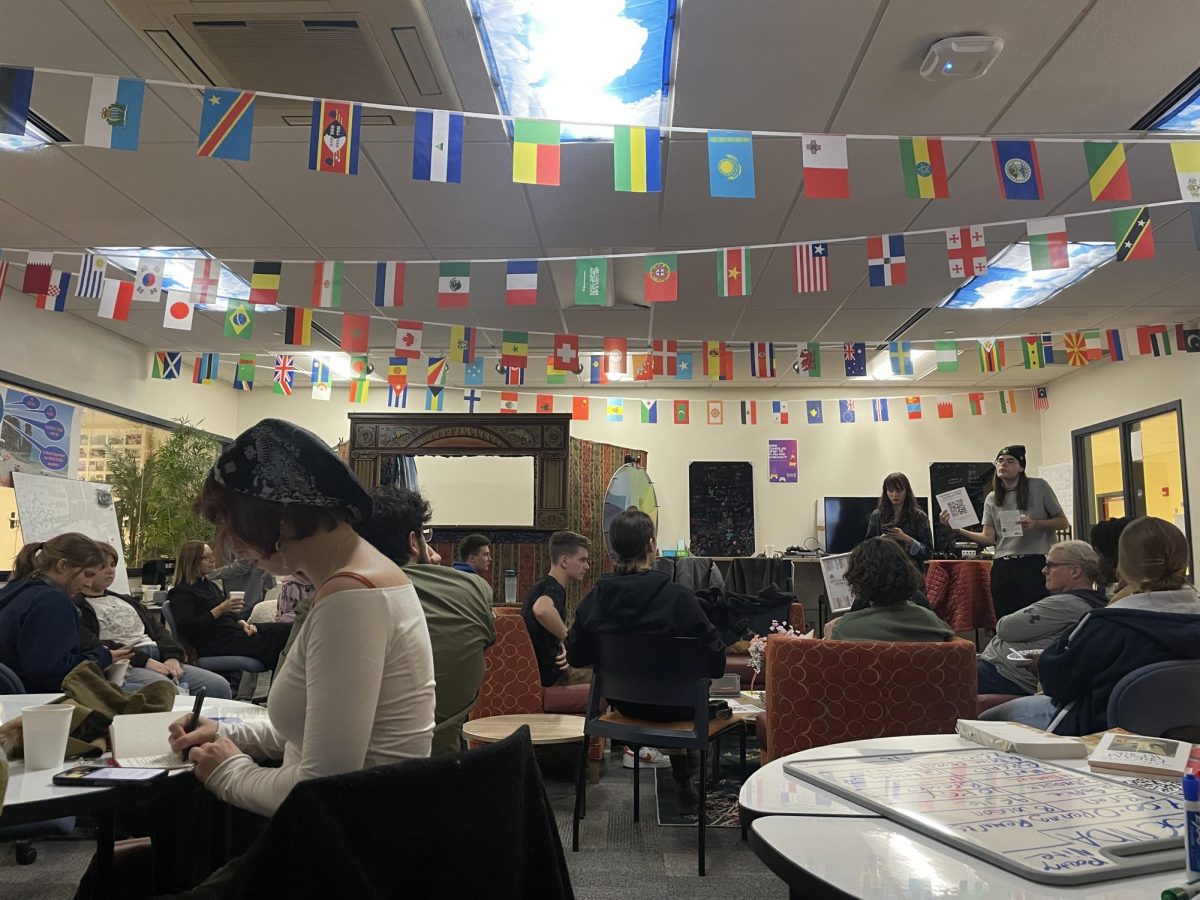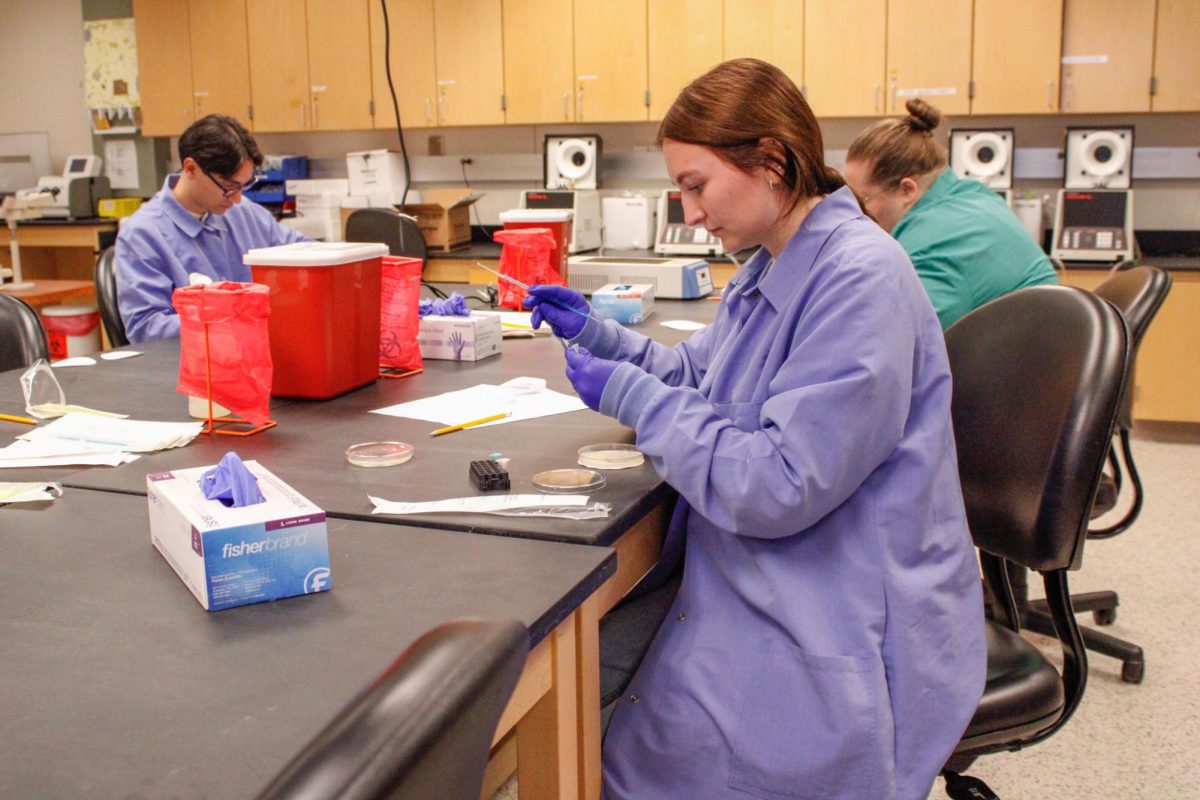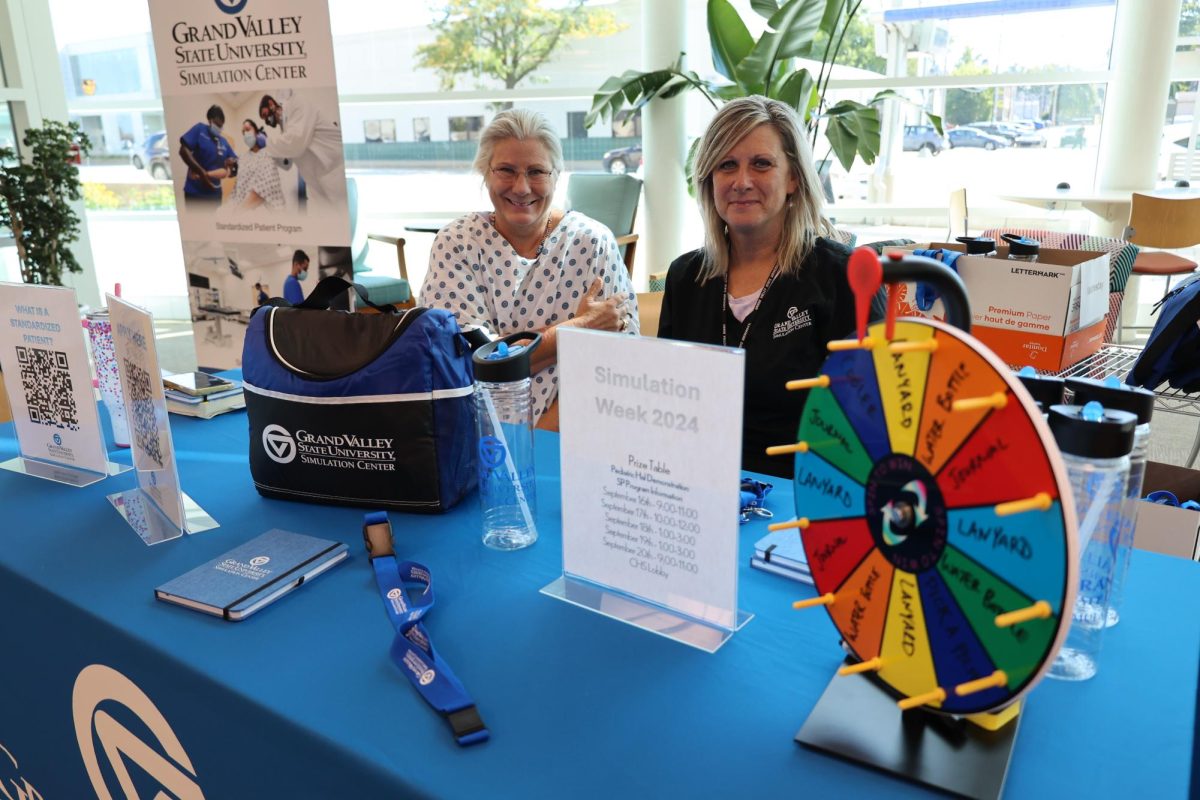Meegan Zickus is a professor of Biomedical Ethics (bioethics) at Grand Valley State University who suffers from a rare autoimmune disease called Necrotizing Autoimmune Myopathy (NAM). NAM is a disease characterized by “necrosis, or cell death, in the muscles, which causes weakness and fatigue.”
Though this condition has altered the way Zickus is able to interact with students, her passion for teaching and appreciation for learning contribute to her continued perseverance and her ability to be asset to her students on campus. Zickus spends her time teaching bioethics courses online, connecting with students and helping the law community through events like, “Know Your Rights” on campus.
Zickus began working at GVSU eighteen years ago, teaching both biology and bioethics. Zickus, a GVSU Alumna with a history in law, said she never pictured herself where she is today.
“If you would’ve asked me thirty years ago when I was in law school that (I’m) just going to forgo law full time and teach bioethics, I probably would’ve told you, ‘Yeah, that’s not my plan,’” Zickus said.
Zickus was diagnosed with NAM roughly sixteen years ago, two years into her teaching career at GVSU. Her disease is incredibly rare, where “idiopathic inflammatory myopathy is about 1.16 to 19 million cases per year, and necrotizing myopathy represents 10% (of those cases).” After a year of trying to find answers to her symptoms, Zickus eventually found help through a doctor at Mayo Clinic in Minnesota. Since then, she has gone to the clinic “thousands of times” and is participating in multiple studies dedicated to learning more about the rare disease.
COVID-19 dramatically affected how Zickus handles life with her autoimmune disease. When the pandemic struck, Zickus was forced to stay at home indefinitely and move all of her classes online.
“Before COVID, I just was kind of like ‘Well, if I get something, then I get something,’ and when (the pandemic) hit I was like ‘I can’t work anymore,’” Zickus said.
She had received previous training on how to teach online courses, so she felt the transition to online learning went smoothly. Zickus still must conduct classes online even after COVID-19 restrictions have been lifted but she doesn’t mind because she believes it allows her to interact with her students in a new way.
Zickus focuses on creating a community environment through her work at GVSU and said she prioritizes her relationships with her students, inviting them to ask any question day or night.
“Without question, I go to bed knowing I did all that I can do for my students,” Zickus said. “Having professors that care about who you are as a human means more than anything you (would) get out of a book.”
Students appreciate Zickus’ effort to see them as people. Students find her supportive, caring and entertaining.
“Meegan is the most encouraging professor I’ve ever had, and she really stresses how important mental health is,” said Morgan Fischer, a current student of Zickus’ at GVSU.
An important part of life with an autoimmune disease for Zickus is her determination to advocate for invisible illnesses and be a voice for those who need it. Zickus presented in a Ted Talk titled “Immunosuppression in a Pandemic” about her life during COVID-19 as an immunocompromised person in April of 2023 and has made several news appearances in articles relating to life with her condition.
“People don’t always realize (the severity of this condition) because right now I look pretty good,” Zickus said. “Take the mask off, pop me out there, and I’m a functioning human being. You don’t realize that I’m one sinus infection away from dying.”
Zickus is currently teaching three classes per semester at GVSU and is working on a Bioethics textbook. She is Vice President of the Allendale Public School Board of Education, a Commissioner on the Allendale Charter Township Planning Commission and does support work for the Ottawa County Department of Public Health.
She spends most of her energy on offering her students support along with spending time with family and friends. Zickus hopes to continue advocating for her disease, raise awareness of the difficulties of invisible illness and share the impact COVID-19 made on both her career and daily life.






